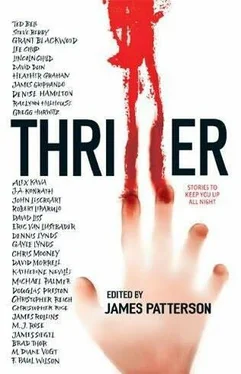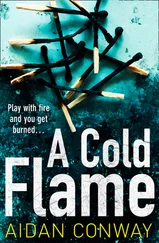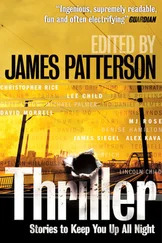For years both the American and the British intelligence communities suspected Stalin would eventually send the Red Army rolling across Europe, and the allies would be hard-pressed to stop them without going nuclear. The question was how to stop it before it started. For Henry, the answer was simple: Gut the Red Army of its best and brightest. Stalin's own paranoia had cocked the gun; all that remained was the gentlest of nudges on the trigger.
He'd purged the Red Army a dozen times since the twenties, killing hundreds of thousands of dedicated soldiers based on nothing more than suspicion and innocent association. Despite this, three of the most gifted had survived and had come to command key positions: Colonel General Vasily Belikov, General Yuri Kondrash and Marshal Georgy Preminin. When war came, these three men and their armies had the power to conquer Western Europe.
Of course, all three had sworn their innocence, but the MgB, ever ready to ferret out traitors to the motherland, and Stalin, ever wary of plotters from within, had all the evidence they needed.
Planning the operation, Henry had rehearsed the scenario from the MgB's perspective:
A British spymaster who has plagued them for years suddenly appears in East Berlin on a hurried mission.
A message intercept from a code the CIA believes still secure mentions an Operation Marigold and the activation of three agents: PASKAL, HERRING and ARIES.
In the weeks preceding the agent's arrival in East Berlin, CIA-backed Radio Free Europe strays from its normal programming and begins broadcasting what the MgB believes is plain-talk code, which includes multiple uses of the word Marigold.
Finally, coinciding with the agent's arrival in East Berlin, an executive secretary at GSFG headquarters vanishes.
Henry had little trouble envisioning the MgB's report to Stalin:
Once inside the Soviet sector, British agent Caulder was followed to Magdeburg, where he serviced three dead drops near the headquarters of the Third Shock Combined Arms Red Banner Army, after which he was photographed passing a message to Colonel General Vasily Sergeyevich Belikov. Upon Belikov's arrest, a false coat button was found on his person. Inside the button was a microdot containing a two-word message: Proceed Marigold.
In Furstenberg, Agent Caulder was seen talking with General Yuri Pavlovich Kondrash, commander of the Second Tank Guards Army and the Twentieth Guards Spetsnaz Diversionary Brigade. Witnesses state the word marigold was passed between them.
In East Berlin, Agent Caulder was photographed near the limousine of General Georgy Ivanovich Preminin, commander of the Group of Soviet Forces Germany. Upon Preminin's arrest, his limousine was searched, and found was a small tube containing a message: Proceed Marigold.
During questioning, Agent Caulder offered a signed confession disclosing the details of Operation Marigold and the complicity of Belikov, Kondrash and Preminin in a plot to foment an uprising in the Red Army and topple the Soviet government.
For his part, Henry had selectively and carefully broken every tradecraft rule in the book: He walked undisguised into a CIA station where he was photographed by Stasi watchers; he entered East Berlin from the French sector with a poorly backstopped cover letter; he was stopped by the VoPo, who noted his license plate and destination, which allowed the Stasi to intercept him in Magdeburg; he destroyed a tracking transmitter, a sure sign he was about to run; finally, he was arrested with espionage paraphernalia, including a cipher book and a partially encoded message containing the word marigold, false travel documents and a burst transmitter found hidden behind a wall.
From the start, Henry had been the right man for the job, but he knew if it were to succeed, the plan required a sacrifice-a man willing to punch a one-way ticket.
The cancer had made his decision easy.
He heard the scrape of the colonel's pistol sliding from its leather holster, followed by the clicking of heels on concrete. He imagined the pistol drawing level with his skull, the cold muzzle hovering over his skin. No regrets, Henry. You made a difference. You went down like a lion.
"Colonel," Henry said without turning. "A favor? One professional to another?"
A pause. Then, "What is it?"
"I'd like to see the sun one more time."
Silence.
Henry squeezed his eyes shut and held his breath.
"Very well, Henry," the colonel said. "Stand up, I'll take you."
In the months following Henry Caulder's arrest, hundreds of officers from units across the GSFG were tried and either executed or imprisoned for treason to the motherland. The purge spread quickly, first to associated commands, then to the civilian political ranks, and finally to GRU military intelligence. By the end of February thousands had disappeared into Lubyanka's basement.
On March 5, 1953, Joseph Stalin died in his sleep.
F. Paul Wilson's urban mercenary Repairman Jack first appeared in his New York Times bestselling novel The Tomb. Here are some Jack facts:
The "Repairman" moniker was not his idea.
Jack is a denizen of Manhattan who dwells in the interstices of modern society. He has no official identity, no social security number, pays no taxes. When you lose faith in the system, or the system lets you down, you go to a guy who's outside the system. That's Jack. But he's not a do-gooder. He's a career criminal and works strictly fee-for-service.
Jack considers himself a small businessman and tries not to get emotionally involved, though he almost always gets emotionally involved. He has a violent streak that worries him at times. A firm believer in Murphy's Law, he thoroughly preplans his fix-its. But things rarely go as planned, and that makes him irritable.
He's low-tech-not a Luddite, but he believes technology is especially vulnerable to Murphy's Law. He believes that men are from Mars, women are from Venus, and government is from Uranus.
Wilson left Jack dying at the end of The Tomb, but resurrected him fourteen years later in Legacies. Since then he has written seven more Repairman Jack novels. Born and raised in New Jersey, Paul misspent his youth playing with matches and reading DC comics. He's the author of thirty-two novels and one hundred short stories ranging from horror to science fiction to contemporary thrillers, and virtually everything in between. He lives at the Jersey Shore, and when not haunting eBay for strange clocks and Daddy Warbucks memorabilia, he dreams up another Repairman Jack tale, like Interlude at Duane's.
Lemme tell you, Jack," Loretta said as they chugged along West Fifty-eighth, "these changes gots me in a baaaad mood. Real bad. My feets killin me, too. Nobody better hassle me afore I'm home and on the outside of a big ol glass of Jimmy."
Jack nodded, paying just enough attention to be polite. He was more interested in the passersby and was thinking how a day without your carry was like a day without clothes.
He felt naked. He'd had to leave his trusty Glock and backup home today because of his annual trip to the Empire State Building. He'd designated April 19 thKing Kong Day. Every year he made a pilgrimage to the observation deck to leave a little wreath in memory of the Big Guy. The major drawback to the outing was the metal detector everyone had to pass through before heading upstairs. That meant no heat.
Jack didn't think he was being paranoid. Okay, maybe a little, but he'd pissed off his share of people in this city and didn't care to run into them naked.
After the wreath-laying ceremony, he decided to walk back to his place on the West Side and ran into Loretta along the way.
They went back a dozen or so years to when both waited tables at a long-extinct trattoria on West Fourth. She'd been fresh up from Mississippi then, and he only a few years out of Jersey. Agewise, Loretta had a good decade on Jack, maybe more- might even be knocking on the door to fifty. Had a good hundred pounds on him as well. She'd dyed her Chia Pet hair orange and sheathed herself in some shapeless, green-and-yellow thing that made her look like a brown manatee in a muumuu.
Читать дальше












